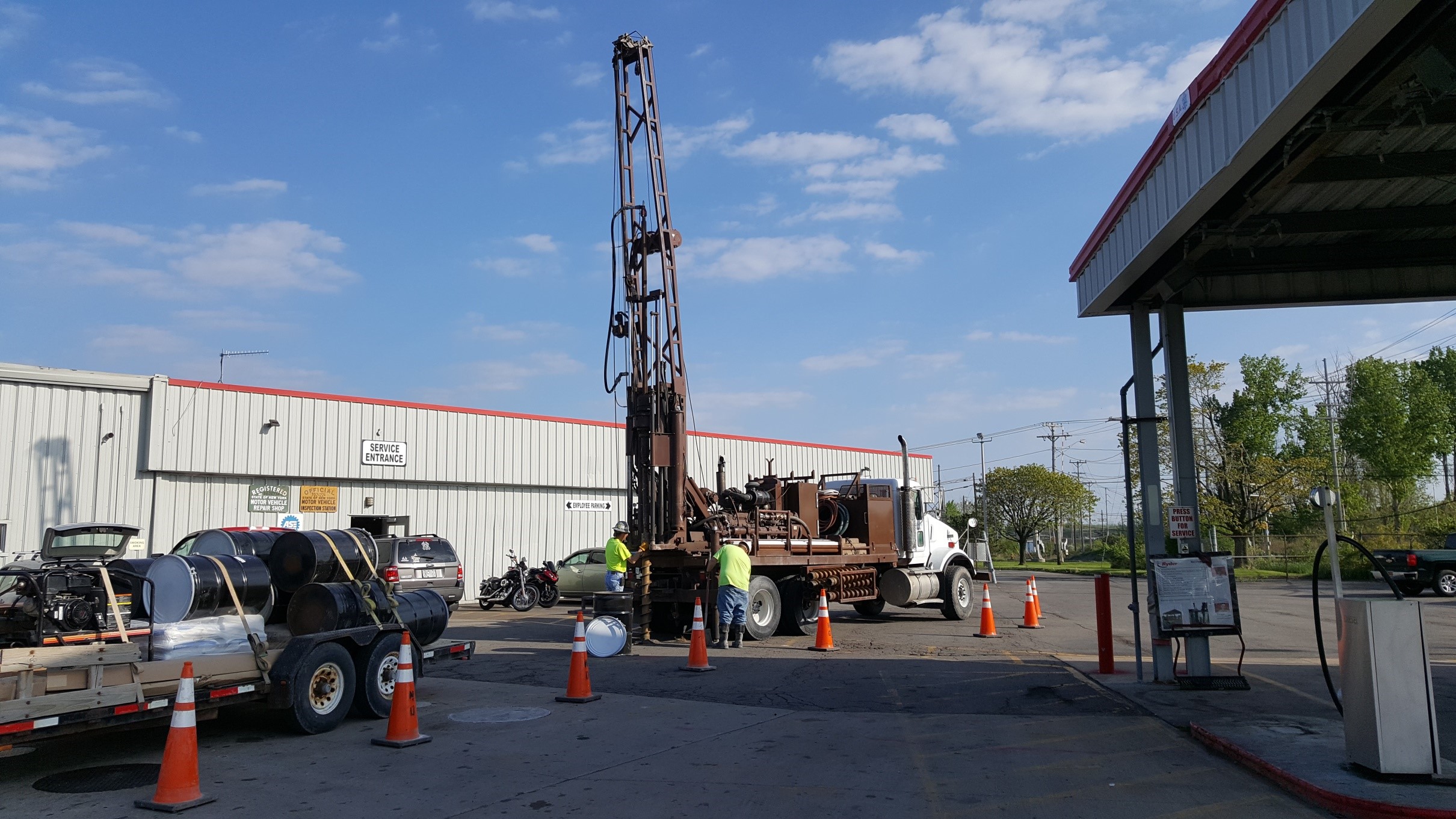Ryder Rochester

Client:
Ryder System, Inc.
Location:
Rochester, NY
Services Provided:
Subsurface Investigation
Tank Closure Reporting
Remediation Work Plan
Semi-Annual Groundwater Reporting
NYSDEC Coordination
UST CLOSURE INVESTIGATION AND REMEDIATION
CORE Environmental Consultants, Inc. (CORE) was contracted to perform an underground storage tank (UST) closure subsurface investigation and report. The investigation was part of a gasoline UST closure at Ryder Facility #0416 located at 329 Jefferson Street in Rochester, New York.
CORE prepared a Limited Subsurface Investigation (LSI) Work Plan that included the installation of five soil borings and one temporary groundwater monitoring well around the UST area. During installation of the soil borings, CORE identified petroleum impacts to soil and groundwater. As a result, a step-out boring was installed to the south, and an additional groundwater sample was collected. The soil and groundwater samples were submitted for laboratory analysis of C-51 List volatile organic compounds (VOCs) and semi-volatile organic compounds (SVOCs). A spill was called into the New York State Department of Environmental Conservation (NYSDEC) Spill Hotline regarding the impacts observed.
Groundwater in the area immediately south of the UST pad contained several CP-51 List VOCs in exceedence of the Groundwater Standards; however the soil contained only two low level exceedences of the applicable CP-51 Soil Cleanup Objectives (SCOs) for Gasoline-Contaminated Soil (Table 2). CORE summarized the results of the LSI in a Tank Closure and Limited Subsurface Investigation Report, submitted to NYSDEC for approval. The Report included a summary of field activities and observations, laboratory analytical results, soil boring logs, and conclusions and recommendations. As a result of the impacts identified, NYSDEC required the implementation of a remedial strategy to address impacts to groundwater.
CORE prepared a Remedial Work Plan detailing implementation of a monitored natural attenuation (MNA) remedial alternative. Based on the Site's shallow groundwater table and relatively low concentrations of VOCs in groundwater, CORE suggested that MNA would be a suitable remedial strategy to monitor the natural biodegradation of petroleum compounds in the groundwater. NYSDEC agreed, and CORE prepared a Remedial Work Plan for the Site that included the installation of four groundwater monitoring wells and semi-annual sampling and reporting for 2 years.
CORE currently performs the semi-annual groundwater monitoring and reporting. The Semi-Annual Groundwater Monitoring Reports include a summary of methods utilized during field activities, field observations and findings, laboratory analytical results, groundwater purge logs, and appropriate Site maps.